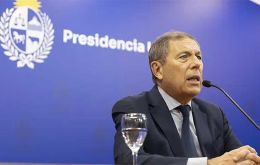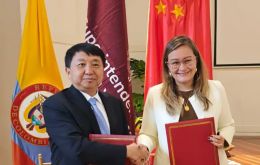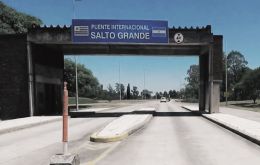MercoPress. South Atlantic News Agency
Economy
-
Thursday, August 21st 2025 - 10:19 UTC
Moody's upholds Paraguay's investment grading

The international rating agency Moody's on Tuesday reaffirmed Paraguay's sovereign rating at “Baa3”, maintaining a stable outlook. This rating, considered an investment grade, is the result of the South American country's strong economic performance, fiscal discipline, and institutional stability. The Baa3 rating entails lower financing costs, with better borrowing conditions in terms of interest rates and maturities.
-
Wednesday, August 20th 2025 - 21:41 UTC
Lula and Macron agree to further discuss EU-Mercosur FTA

Brazilian President Luiz Inácio Lula da Silva held a telephone conversation about one hour long Wednesday with his French colleague Emmanuel Macron, during which both leaders pledged to further discuss the Mercosur-European Union Free Trade Agreement to finalize it.
-
Wednesday, August 20th 2025 - 08:55 UTC
The Bank of England could learn from the Falklands

By A. S. H. Smyth, (*)
-
Tuesday, August 19th 2025 - 11:18 UTC
Uruguay announces economic measures to boost growth

Uruguay's Ministry of Economy and Finance (MEF) has announced a new set of measures to “prioritize” and “streamline” investment to boost growth by making things easier for both national and foreign investors. “There is a political idea of what we want to do,” Minister Gabriel Oddone explained.
-
Monday, August 18th 2025 - 21:38 UTC
Lula and Noboa discuss trade beyond ideological discrepancies

Brazilian President Luiz Inácio Lula da Silva on Monday welcomed his Ecuadorean colleague Daniel Noboa at the Planalto Palace for a meeting during which both leaders set aside their ideological discrepancies and focused on strengthening trade and cooperation, particularly after Washington's tariffs.
-
Saturday, August 16th 2025 - 10:55 UTC
YPF case: NY Court of Appeals rules in favor of Argentina

The Second Circuit Court of Appeals in New York has suspended a lower court's order that required Argentina to transfer 51% of its shares of the state oil company YPF to a New York bank. This overruling of Judge Loretta Preska's Sept. 2023 order is a significant win for Buenos Aires, as it allows the South American country to appeal the $16 billion judgment without having to surrender a key state asset
-
Saturday, August 16th 2025 - 10:06 UTC
Belt and Road Initiative: Colombia and China sign key trade deal

Colombia's Superintendency of Industry and Commerce (SIC) and China's State Administration for Market Regulation signed a memorandum of understanding to strengthen trade cooperation and advance the South American country's participation in the “Belt and Road Initiative” (also known as the “Silk Road”).
-
Thursday, August 14th 2025 - 10:18 UTC
Argentina's inflation in July stands at 1.9%

Argentina's Consumer Price Index (CPI) rose 1.9% in July, bringing the year-on-year inflation to 36.6% and the year-to-date figure to 17.3%, according to a report from the National Institute of Statistics (Indec) released Wednesday in Buenos Aires. This marks the third consecutive month with a monthly inflation rate below 2%, a trend not seen since late 2017.
-
Wednesday, August 13th 2025 - 20:48 UTC
Uruguay's Salto more expensive than Argentina's Concordia across the border

A study by the Catholic University of Uruguay's (UCU) Economic Observatory on the Salto Campus released this week showed that goods were once again much less expensive in Argentina. However, the difference was not as large as in previous years.
-
Wednesday, August 13th 2025 - 10:34 UTC
Argentine SMEs losing ground to imports

A report by the SME Observatory Foundation (FOP) warned that one-third of Argentina's small and medium-sized industrial enterprises (SMEs) were losing market share to imports. The study, which surveyed 407 companies, found that 45% of SMEs feel a growing threat from imported goods, the highest level since 2007.
